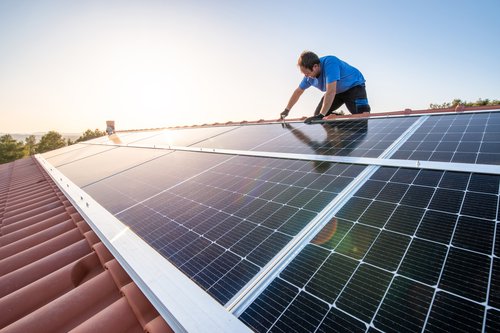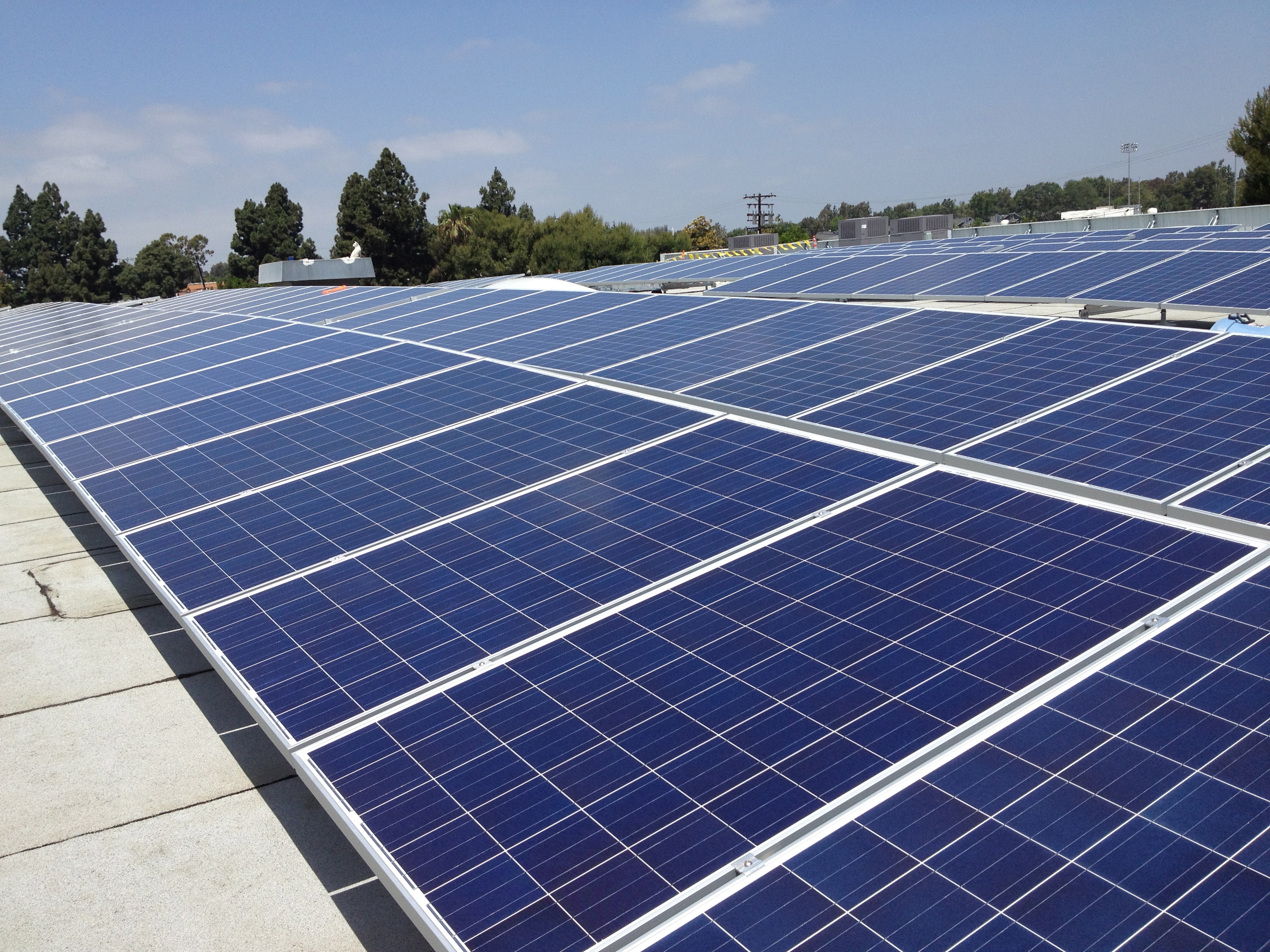Why Solar Panels for Business are a Smart Investment: Future Advantages and Financial Savings
Why Solar Panels for Business are a Smart Investment: Future Advantages and Financial Savings
Blog Article
Just How to Pick the Right Solar Power Setup for Your Power Needs
Choosing a proper solar energy installment calls for a systematic strategy that begins with a clear understanding of your power intake patterns and anticipated future needs. Elements such as the kind of solar technology, setup costs, and offered motivations play critical functions in making a notified decision - solar photovoltaic. The choice of a qualified installer can not be neglected, as their competence can substantially influence the efficiency and longevity of your system. As you consider these considerations, you might discover that the best path is not always the most noticeable one.
Assess Your Power Demands
Examining your power requires is an important initial action in the solar power installation process. Comprehending your current and future energy consumption will direct the style of an effective solar system customized to your requirements.
Consider seasonal variations in power usage, as particular months might require more power as a result of heating or air conditioning needs. In addition, review any type of scheduled adjustments in way of living or residential property, such as the purchase of electrical vehicles or home expansions, which may raise your energy demands in the future.
When you have a detailed understanding of your energy consumption, you can figure out the proper solar capability needed to meet those demands. This evaluation not only helps in sizing the solar installation yet likewise informs decisions concerning power storage space solutions and possible grid link demands. solar photovoltaic. Inevitably, precisely assessing your energy needs makes sure that your solar power system operates successfully, providing the advantages of sustainable power in placement with your usage patterns

Evaluate Solar Technology Options
When considering a solar power setup, it is necessary to review the various solar technology choices offered to make sure the system lines up with your energy requirements and budget plan. The main innovations include monocrystalline, polycrystalline, and thin-film solar panels, each offering unique advantages and drawbacks.
Monocrystalline panels are known for their high efficiency and performance in minimal room, making them ideal for property setups with less roof location. They tend to be a lot more expensive. Polycrystalline panels, while slightly much less efficient, are typically more economical and can be a good selection for larger setups where space is not a restraint. Thin-film photovoltaic panels are lightweight and versatile, excellent for unique surfaces, however they typically have lower effectiveness and require more room to create the exact same energy result.
In addition to panel kinds, consider solar inverters, which transform the straight present created by the panels right into alternating present for home usage. String inverters, microinverters, and power optimizers each have one-of-a-kind benefits that can impact system performance. Reviewing these alternatives will help you make an educated choice that meets your energy requirements efficiently.
Take Into Consideration Setup Expenses
Recognizing installment prices is crucial for anyone considering a solar power system. These costs can vary considerably based upon numerous variables, consisting of system dimension, sort of panels, and installment intricacy. A normal property solar setup may range from $15,000 to $30,000 before incentives, which can be a substantial upfront financial investment.
To precisely analyze installment expenses, it is necessary to acquire detailed quotes from multiple solar companies. These quotes ought to break down the prices of tools, labor, permits, and any kind of extra accessories needed for the setup. Pay close focus to the top quality of products being provided, as higher-quality panels and inverters can cause far better effectiveness and durability, potentially countering greater initial prices.
Moreover, consider the lasting ramifications of installation expenses. A less expensive setup could save cash in advance but might result in greater maintenance expenses or decreased energy manufacturing in time. It is additionally recommended to evaluate funding options, such as solar lendings or leases, which can impact your total monetary commitment.
Study Local Rewards
Checking out regional incentives can considerably affect the total expense of a solar power installation. Many regions provide a variety of financial motivations focused on promoting eco-friendly power usage, making solar energy extra easily accessible and cost effective for homeowners and businesses alike.
These motivations may include government tax credit ratings, state discounts, and regional utility firm programs that give cash money motivations or net metering alternatives. The Federal Financial Investment Tax Obligation Credit Rating (ITC) enables you to subtract a considerable percent of your solar installation costs from your government taxes. State-specific incentives can further boost these cost savings, often in the type of straight money discounts or tax credits.
Furthermore, some neighborhood federal governments might provide real estate tax exemptions for solar installations, guaranteeing that your financial investment does not enhance your building tax obligation liability. Looking into these incentives can uncover considerable cost savings, which can affect your decision on the dimension and kind go to this website of solar system to install.

Pick a Trusted Installer
Choosing a credible installer is important to making certain the success and longevity of your solar power system. The installation process dramatically impacts the performance and effectiveness of your photovoltaic panels, making it imperative to choose a contractor with a tested record. Begin by looking into neighborhood installers via on-line testimonials and reviews. Internet sites such as the Better Company Bureau can offer insight into customer fulfillment and service integrity.
Next, verify the installer's qualifications, including licenses, certifications, and insurance policy. A trusted installer should hold qualifications from acknowledged organizations, such as the North American Board of Qualified Energy Experts (NABCEP), suggesting a high degree of experience. Furthermore, inquire concerning the installer's experience with similar tasks, specifically in your area, as regional climate and guidelines can influence useful link installment techniques.
Request numerous quotes and compare them not only on rate but likewise on the high quality of tools and guarantees supplied. A trustworthy installer needs to provide transparent info concerning their product or services, aiding you make an informed decision. By spending time in choosing a reputable installer, you will improve the total efficiency and durability of your solar energy system.
Conclusion
Finally, picking the appropriate solar power setup demands a detailed evaluation of energy demands, an understanding of readily available solar modern technologies, and you can check here a careful consideration of setup expenses. Checking out neighborhood motivations can boost economic advantages, while choosing a trusted installer makes certain quality workmanship and reliability. solar photovoltaic. By methodically evaluating these elements, individuals can achieve an optimal solar solution that meets both current and future power needs, eventually adding to sustainable energy practices and cost savings over time
Report this page